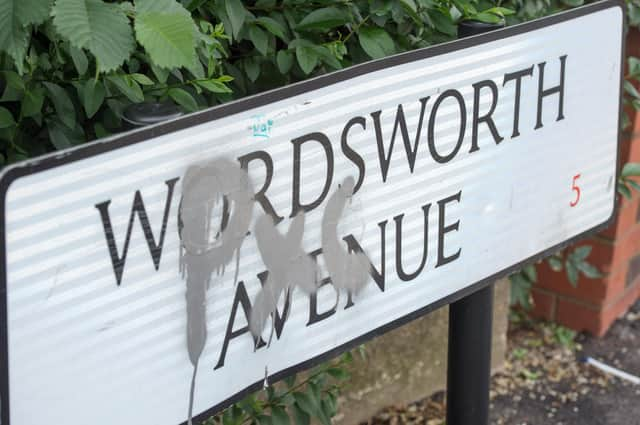'Common sense prevailed' after review of Sheffield street names


I start the year with optimism based on a genuine belief that we, here in Sheffield, are getting our act together. There might be a long way to go, but at least from where I sit, there is a refreshing outward looking and hopeful mood.
But for the green shoots turn into something much more tangible, we will need to pick up on one of the signs of progress from 2021. I'm talking about the willingness of the City Council to listen.
Advertisement
Hide AdAdvertisement
Hide AdGoing back to fundamentals is always helpful. To ask: what is it that we are trying to achieve, and can we mobilise everyone to work out the best and least divisive way of getting there?
I'm reflecting on what happened when a review took place of street names in the city which throw up parts of our more controversial history as a colonial nation and the importance of getting this right, as the local Race Equality Commission prepares to publish its final report.
What's in a name? Well, these days quite a lot. Readers might remember the tremendous furore that took place over the toppling of the statue of Edward Colston in Bristol and the renaming of Colston Hall – a community and entertainment venue in the city.
Statues have attracted attention over the last two years as activists – sometimes referred to as “woke” – have tried to interpret history in a way that requires the removal, or writing out, of names and commemorations. It has even reached Oxford colleges.
Advertisement
Hide AdAdvertisement
Hide AdI get the importance of symbolism. People need to know that we care, understand our history, good and bad, and that we reflect on what it means for the present. But when it is carried to extremes, there is a ridiculous attempt to rewrite history and place a burden on today's generation which never existed at the time.
Sometimes it's downright funny, sometimes it's tragic and dangerous. Because history is just that: history. We should learn from it, not live in it; we should understand the pain that existed in the past, but also the balance of where people were good and bad: sometimes extraordinarily humane, and on other occasions, disastrously cruel.
When the Race Equality Commission in Sheffield initiated work on symbols within the city that might fall foul of what has happened elsewhere in Britain, I held my breath. As it happens, on this occasion, common sense prevailed. The City Council decided to consult with people, rather than to presume what they thought, or what was “good for them".
They asked, amongst other things, about statues and symbols, but also about street names. And here it gets tricky. Streets and roads are named for all kinds of historic reasons which have often been long-forgotten such as Dundas and Havelock.
Advertisement
Hide AdAdvertisement
Hide AdCanning Street in the city centre is named after a previous Prime Minister in the early 19th-century. His father had been involved with the slave trade, and in his early days he defended the slave traders’ rights to compensation. Later he described slavery in unequivocally condemnatory terms in supporting the final abolition in 1834.
Sometimes names are significant in terms of what people are trying to put across. Where I was brought up, we had a whole range of street names which reflected someone's love of poetry. Chaucer, Wordsworth, Browning, Dryden, Keats, and Southey were all famous poets. Not all of them were saints but all with some form of genius in creativity and expression.
There is also a tradition in Sheffield, and elsewhere in the country, of naming schools and even roads after local dignitaries. I'm not yet counted as one of those!
Once I was asked, I think partly tongue in cheek, if I’d like a new facility to be named after me. Unfortunately, this was a new "public convenience" in the city centre. A very posh one, it must be said. Not, however, something I wish to be remembered by. I used to joke that it brought a “flush to my face" just thinking about it.
Advertisement
Hide AdAdvertisement
Hide AdIn response to the consultation, Sheffield residents were quite happy for their roads to continue being named after someone of distinction from 200 years ago. They understood common-sense. That whatever someone had done, or their father had done, was literally ancient history. In any case, people change their minds. I certainly have.
I've often been persuaded, over the last half-century, to understand and sometimes embrace things that years ago I was opposed to. I could be won over by conversation and persuasion, but never by bludgeoning.
What is the lesson from our road name review? Go out and consult, listen to people and then above all, take notice of what they're telling you.
For all of us, the here and now is fundamental. That is why, in doing our best locally, as I spelled out in my last column, to make progress in tackling climate change, we need to be prepared to work together. Proposals for red routes up Ecclesall Road and Ecclesall Road South, and the Abbeydale corridor, have evoked a massive reaction. Taking people along with the objective, listening to ways of achieving the same outcome but with less potential damage and disruption, requires not just the wisdom of Solomon, but once again, the willingness to listen.